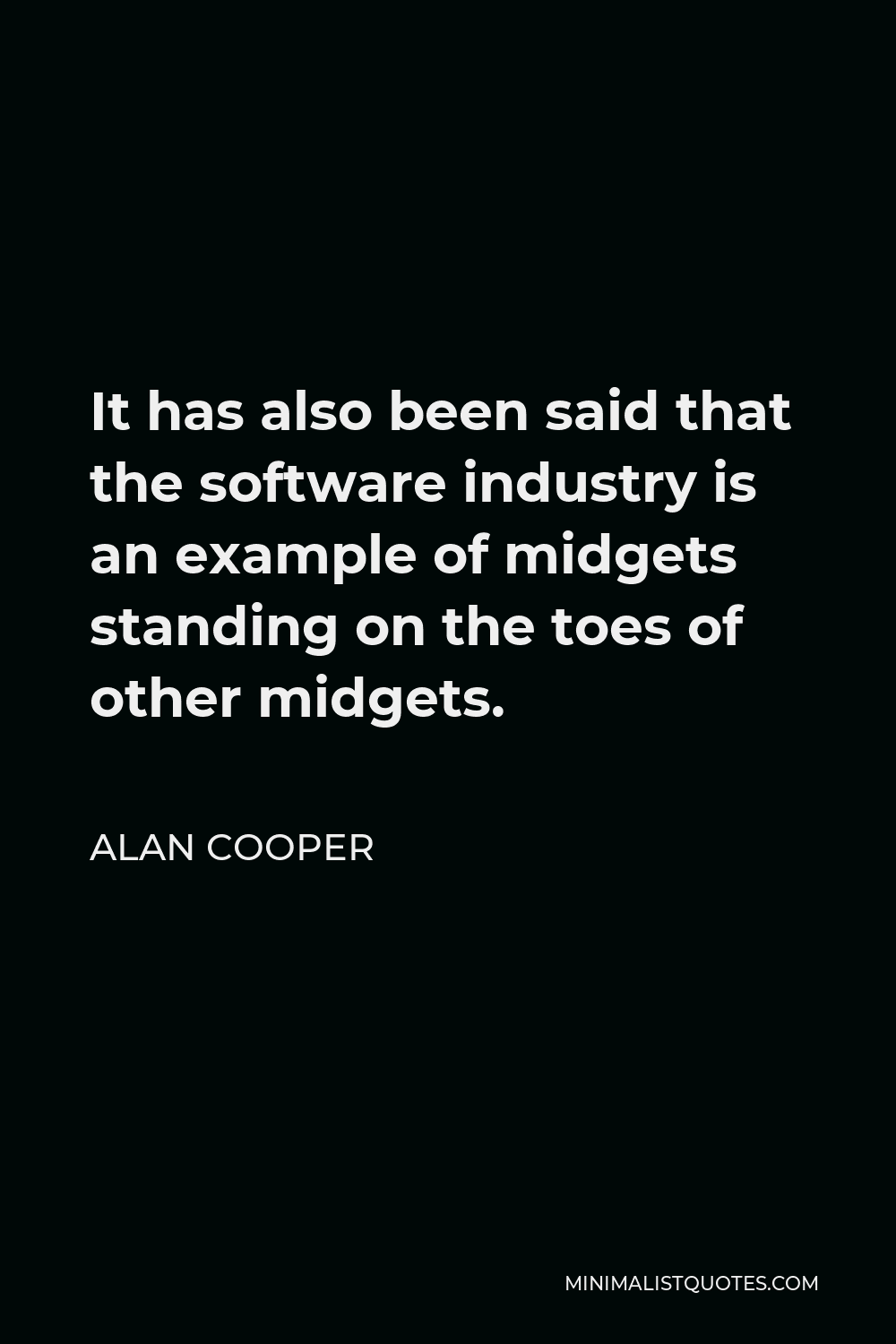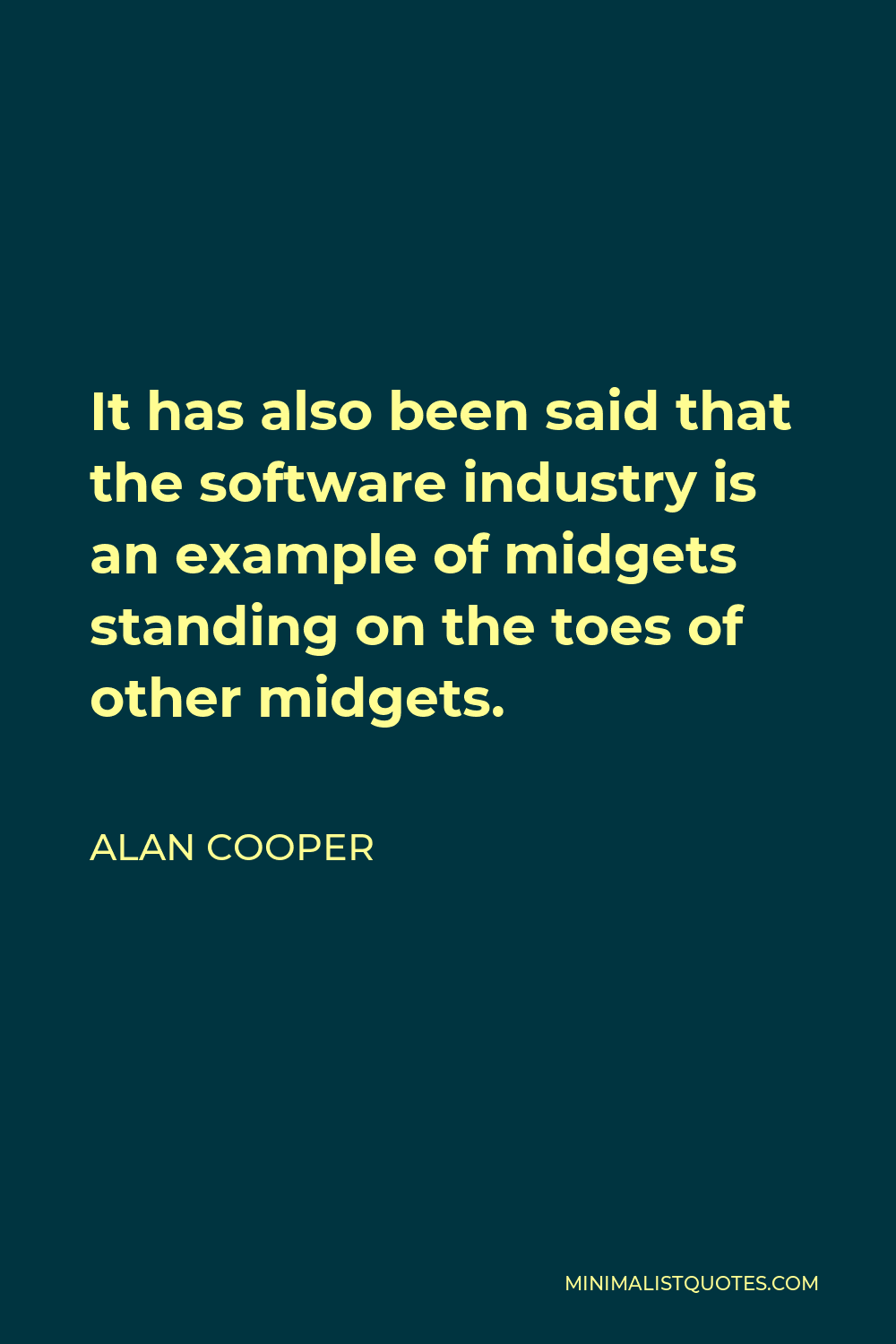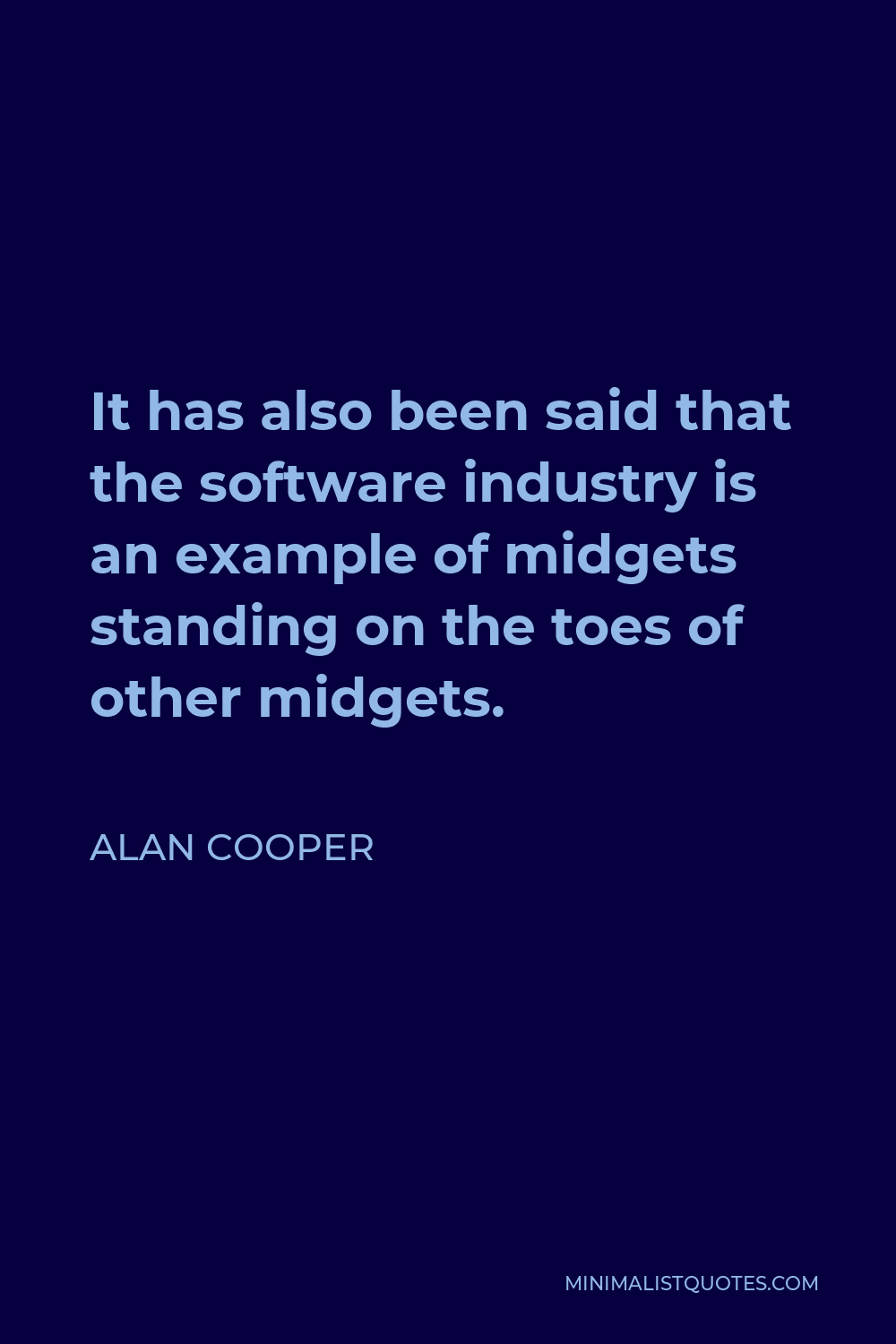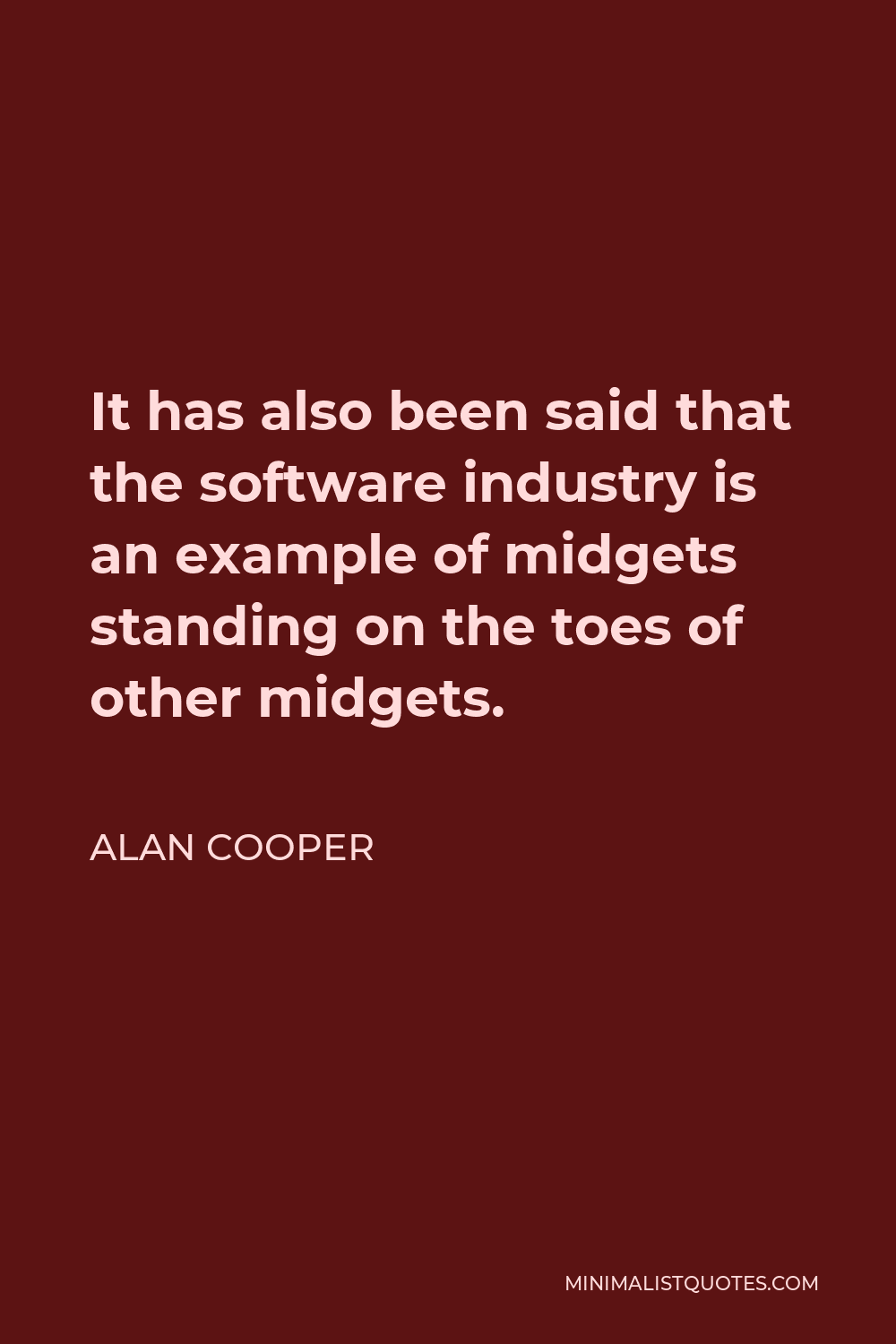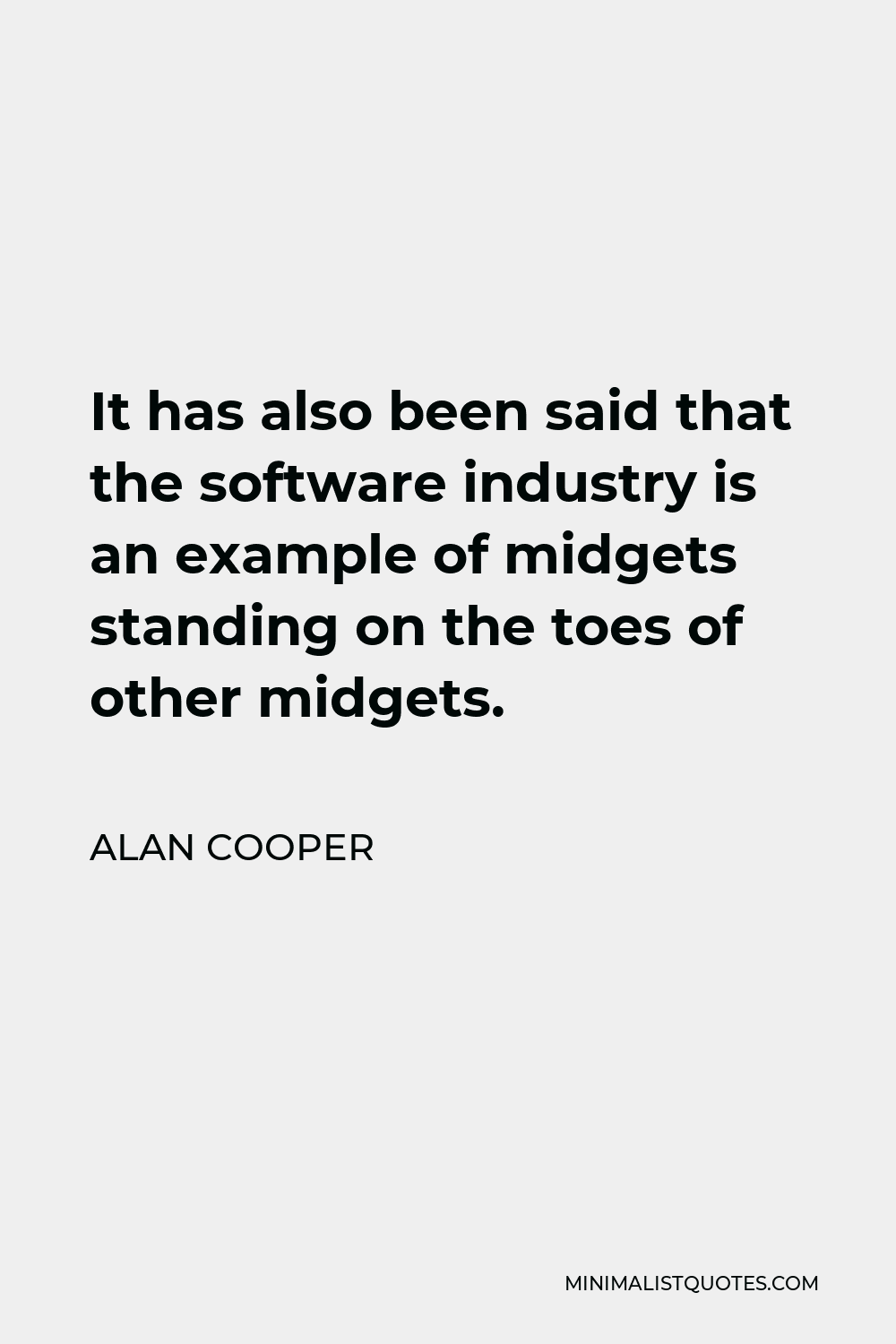Form follows function straight to hell.
ALAN COOPERIt has also been said that the software industry is an example of midgets standing on the toes of other midgets.
More Alan Cooper Quotes
-





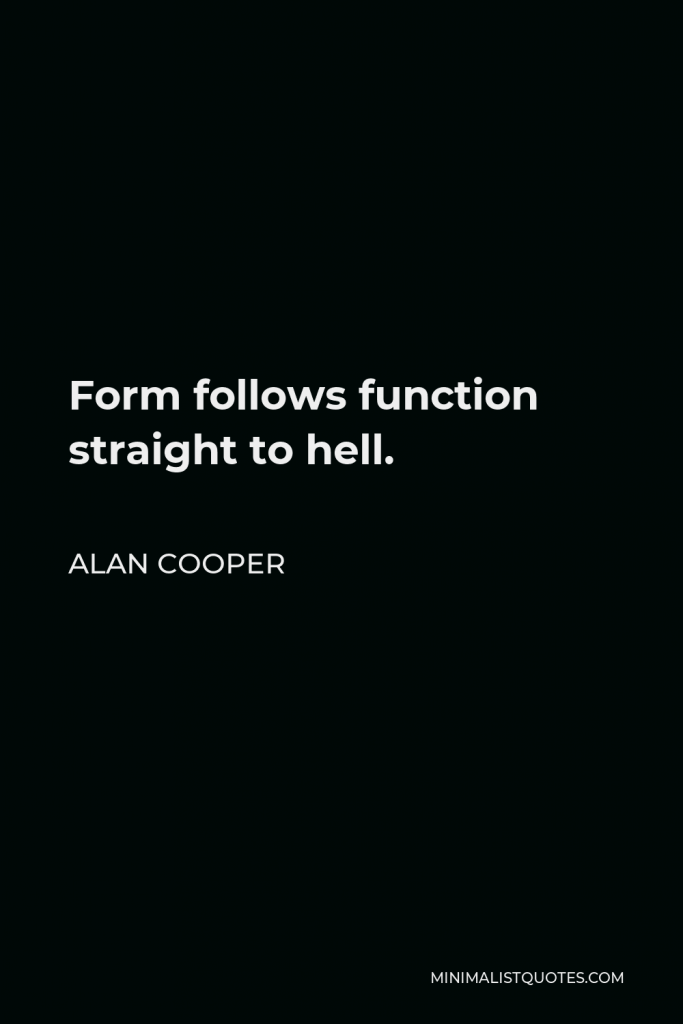

-





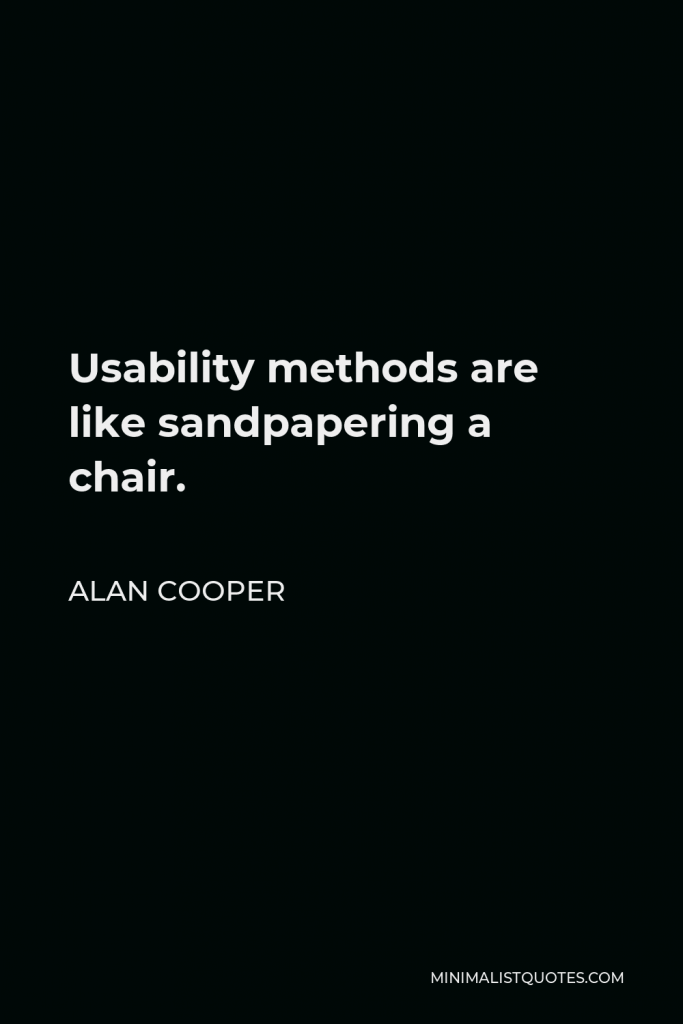

Usability methods are like sandpapering a chair.
ALAN COOPER -





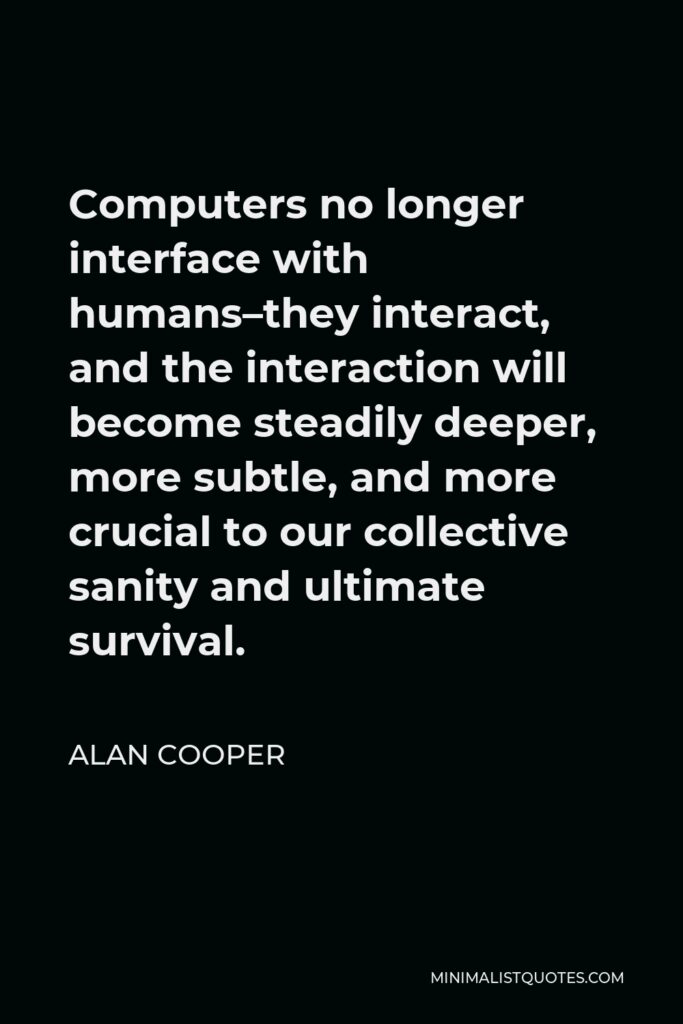

Computers no longer interface with humans–they interact, and the interaction will become steadily deeper, more subtle, and more crucial to our collective sanity and ultimate survival.
ALAN COOPER -





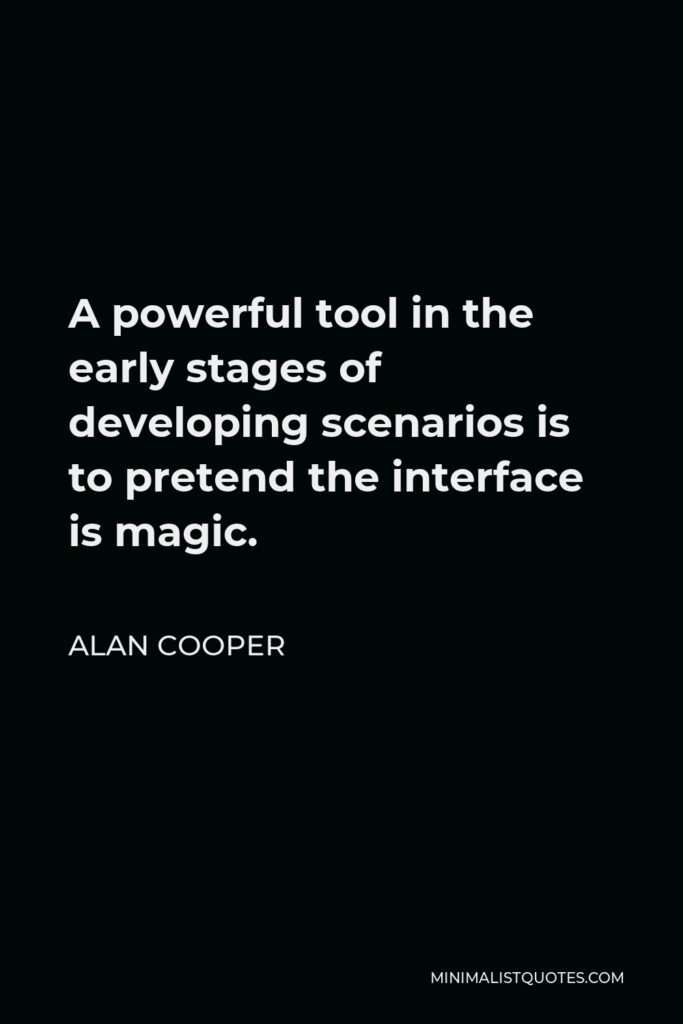

A powerful tool in the early stages of developing scenarios is to pretend the interface is magic.
ALAN COOPER -





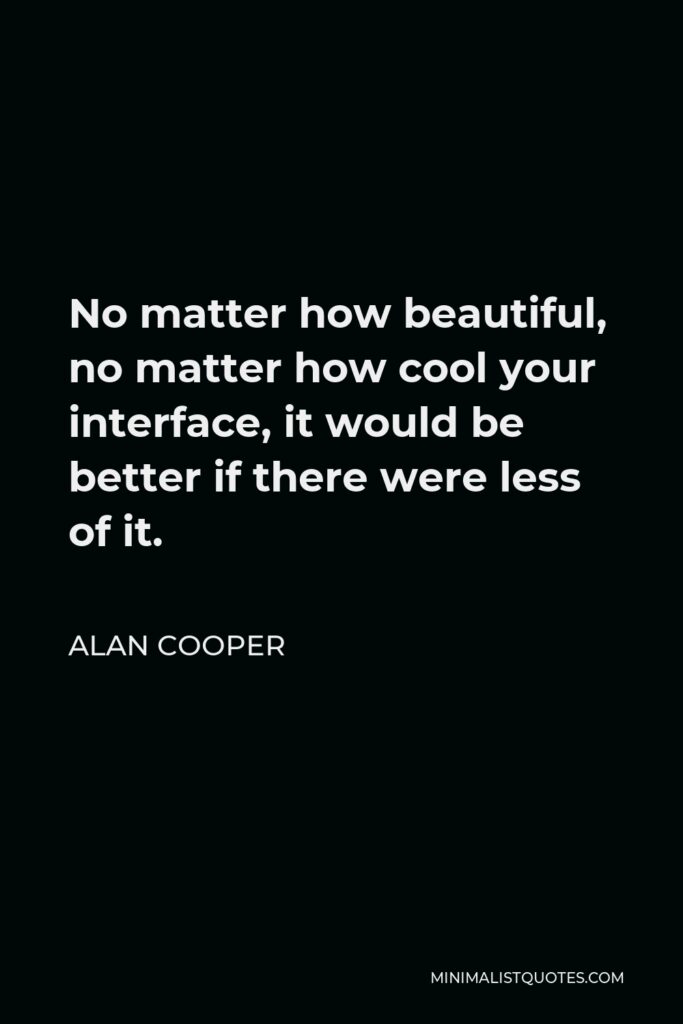

No matter how beautiful, no matter how cool your interface, it would be better if there were less of it.
ALAN COOPER -





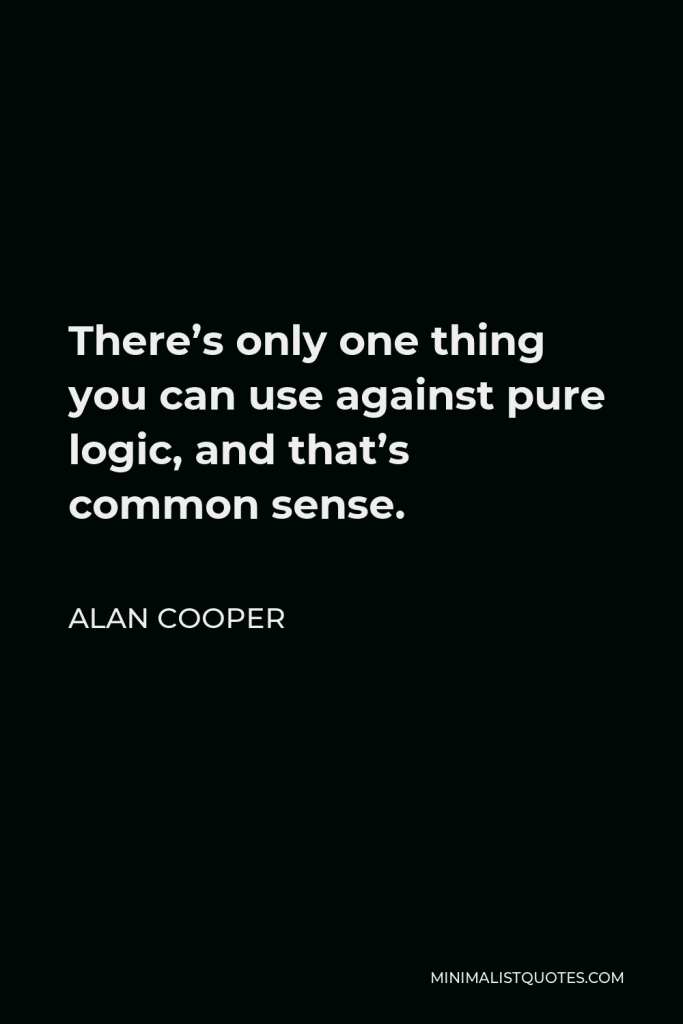

There’s only one thing you can use against pure logic, and that’s common sense.
ALAN COOPER -





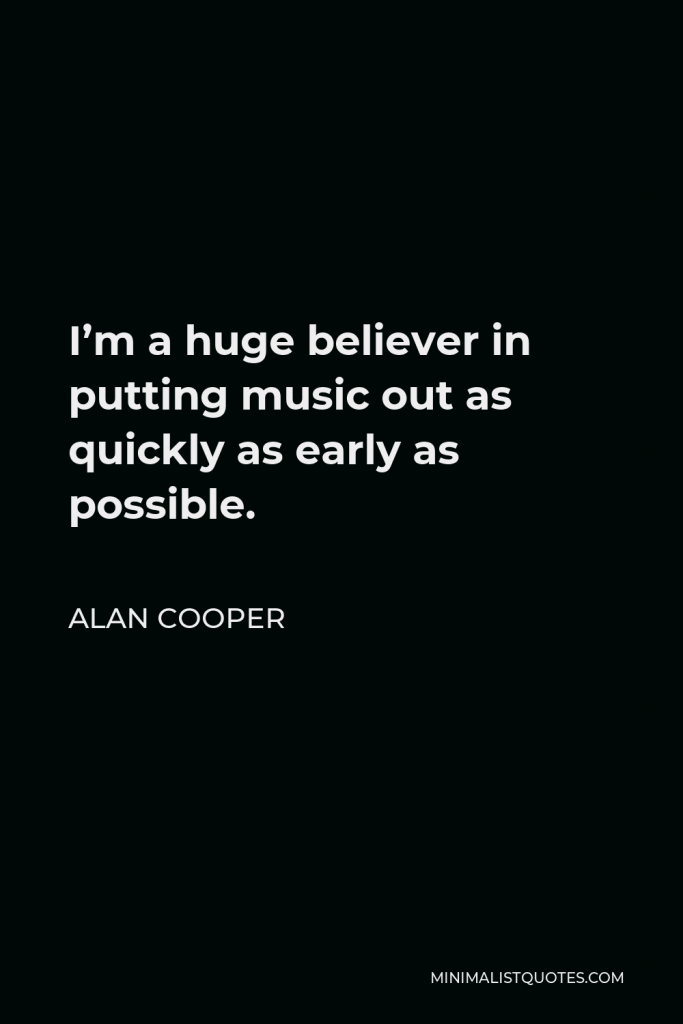

I’m a huge believer in putting music out as quickly as early as possible.
ALAN COOPER -





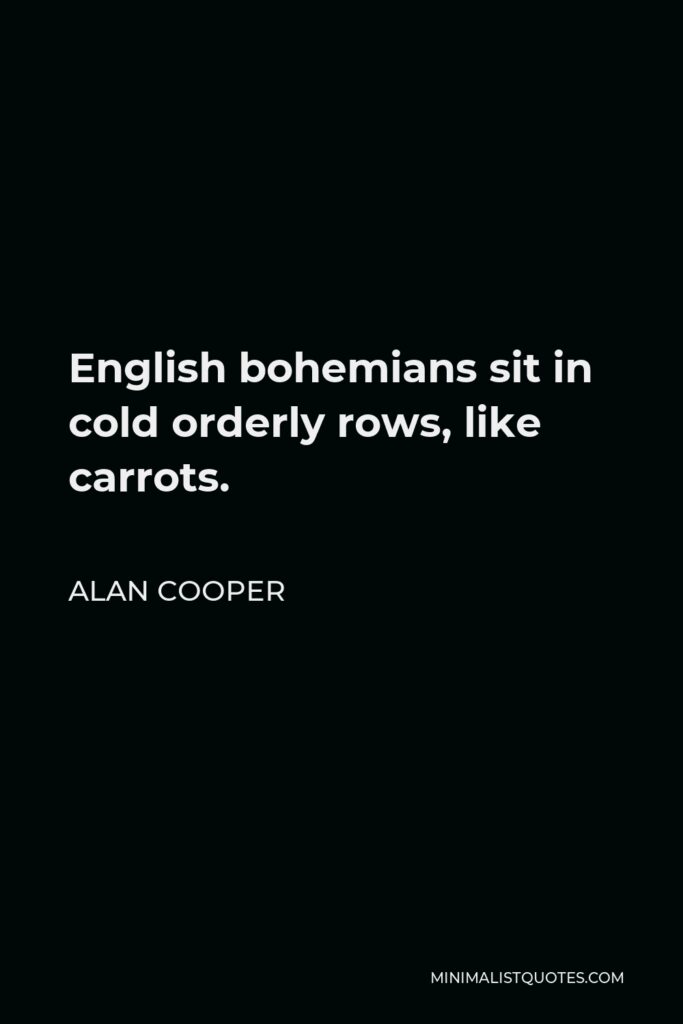

English bohemians sit in cold orderly rows, like carrots.
ALAN COOPER -





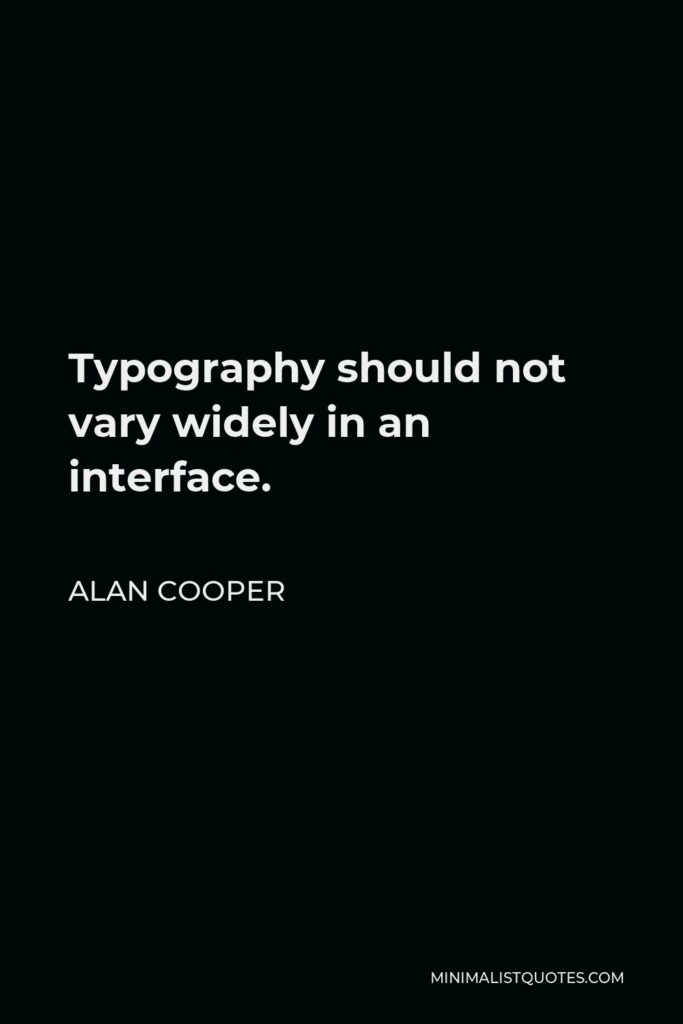

Typography should not vary widely in an interface.
ALAN COOPER -





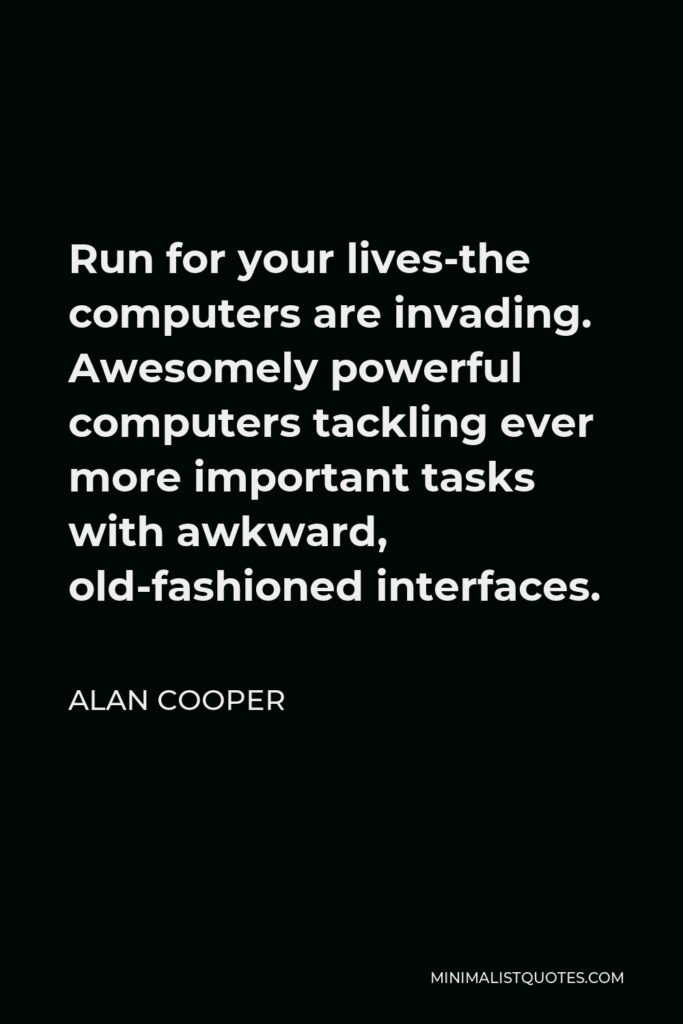

Run for your lives-the computers are invading. Awesomely powerful computers tackling ever more important tasks with awkward, old-fashioned interfaces.
ALAN COOPER -





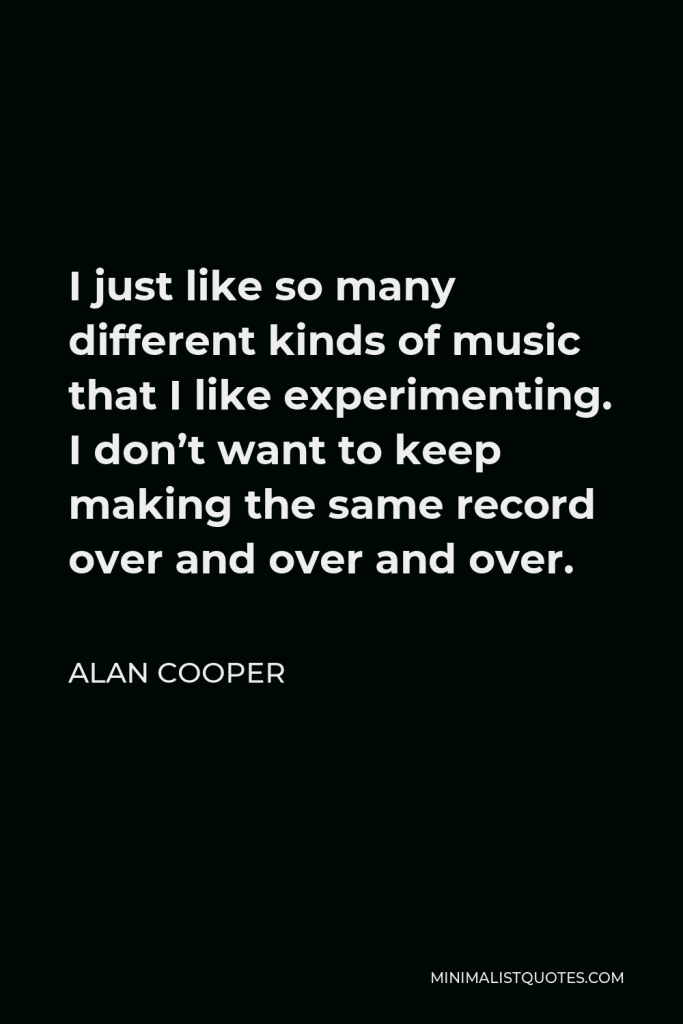

I just like so many different kinds of music that I like experimenting. I don’t want to keep making the same record over and over and over.
ALAN COOPER -





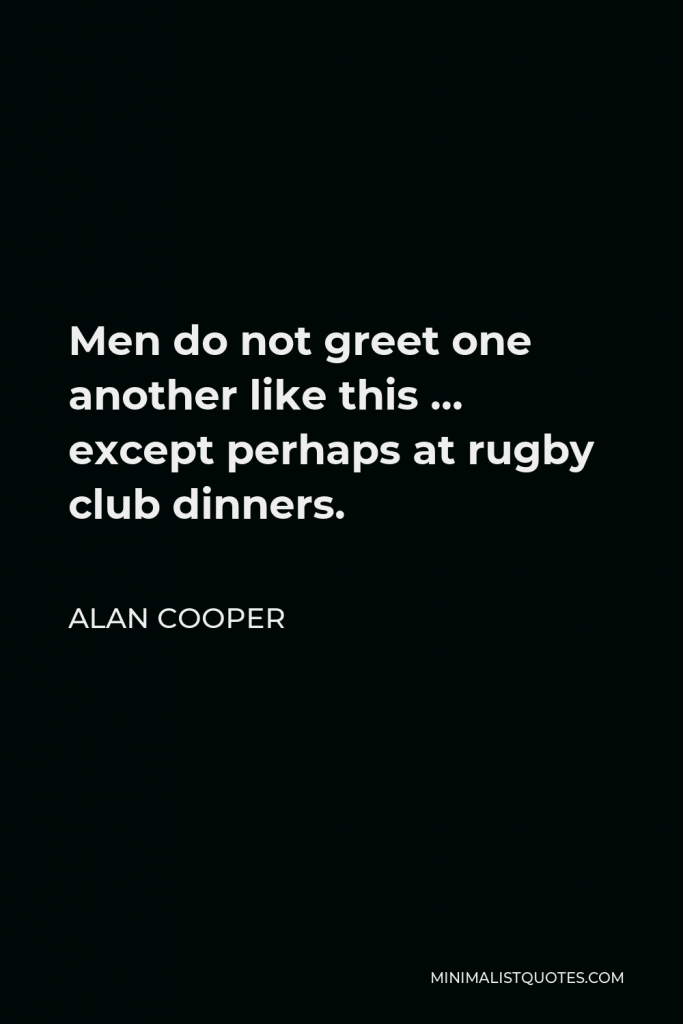

Men do not greet one another like this … except perhaps at rugby club dinners.
ALAN COOPER -





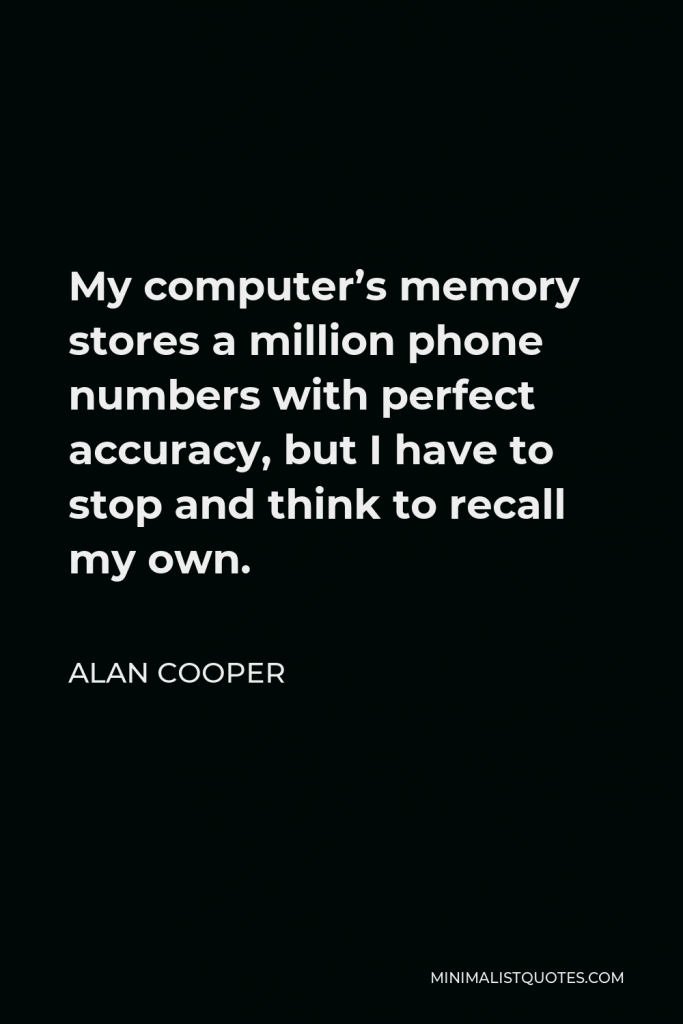

My computer’s memory stores a million phone numbers with perfect accuracy, but I have to stop and think to recall my own.
ALAN COOPER -





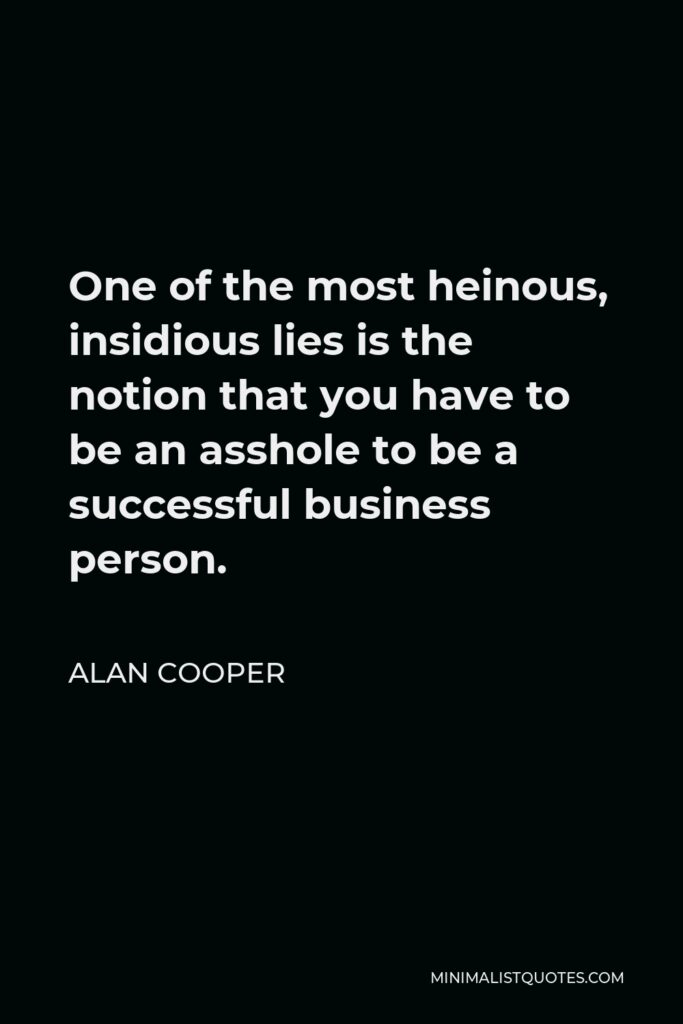

One of the most heinous, insidious lies is the notion that you have to be an asshole to be a successful business person.
ALAN COOPER -





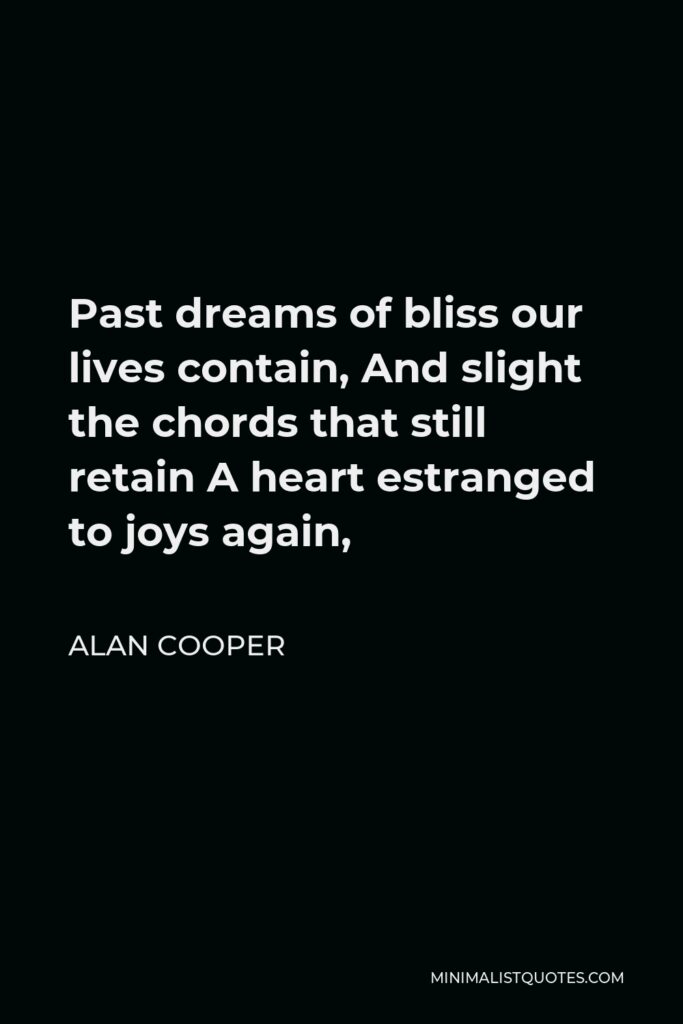

Past dreams of bliss our lives contain, And slight the chords that still retain A heart estranged to joys again,
ALAN COOPER -





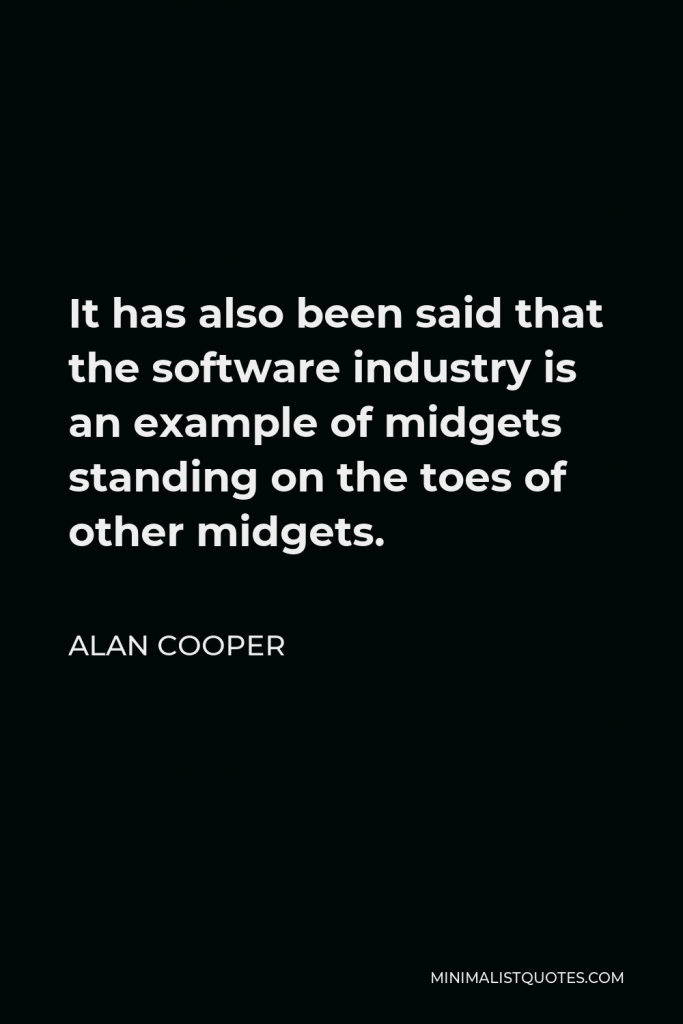

It has also been said that the software industry is an example of midgets standing on the toes of other midgets.
ALAN COOPER
